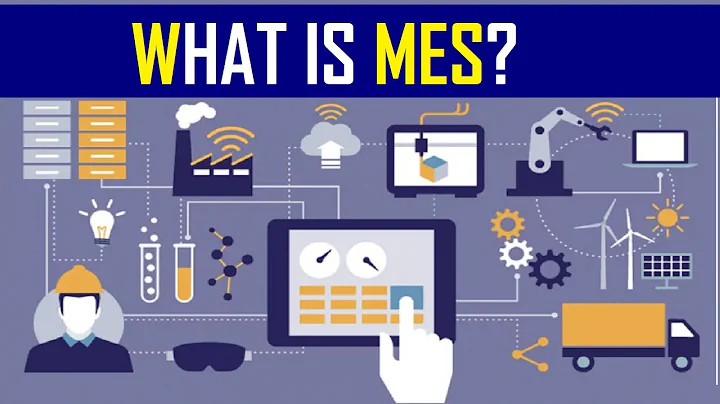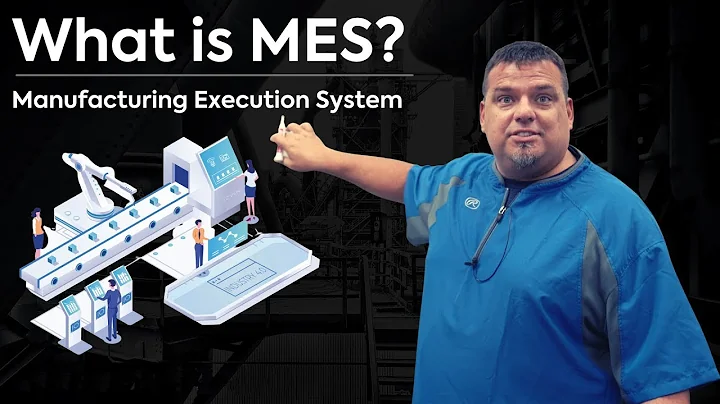Today in Industry 4.0, MES systems have become an important link in enterprise informatization. Especially with the advent of smart manufacturing, MES has been pushed to an unprecedentedly important position.

The development of MES systems in recent years has shown the following trends:
1. The new generation of MES has the characteristics of openness, customization, configurability, scalability, etc., and can perform system reconstruction and rapid reorganization in response to changes or reorganization of enterprise business processes. Configuration; in addition, MES is currently being combined with network technology. Most of the new architectures of MES are based on Web technology and support network functions.
2. The integration scope of the new cereal MES is wider, including not only the manufacturing workshop site, but also covering the entire business process of the enterprise. By establishing a unified data model for energy flow, logistics, quality, and equipment status, the data can be adapted to the needs of changes or reorganization of enterprise business processes, and the MES software system can truly be configured. By formulating system design and development standards, MES from different manufacturers and other heterogeneous enterprise information systems can be interconnected and interoperable.
3. The new generation of MES should have more accurate process status tracking and more complete data recording functions. It can obtain more data in real time for more accurate and timely production process management and control, and have the integration of multi-source information. and the ability to process complex information and make quick decisions.
4. The new generation of MES supports production synchronization and networked collaborative manufacturing. It can conduct real-time information interconnection for factories distributed in different locations and even around the world, and conduct real-time process management to coordinate all production activities of the enterprise and establish processes. oriented, agile and hierarchical management.

MES system architecture:
MES can use real-time monitoring and accurate decision-making to guide and manage the production site, and optimize and manage the entire production process from order placement to product completion through information transmission. This rapid response to status changes enables MES to reduce non-value-added activities within the enterprise and effectively guide the factory's production operation process, thereby improving the factory's timely delivery capability and improving material circulation performance. The key to
cereal MES is to emphasize the optimization of the entire production process. It needs to collect a large amount of real-time data in the production process and process real-time events in a timely manner. At the same time, it maintains two-way communication capabilities with the planning layer and control layer, receives corresponding data from the upper and lower layers and feeds back processing results and production instructions. Therefore, MES is different from traditional workshop controllers that focus on production management in the form of dispatching work orders and auxiliary material flow, and also different from unit controllers that focus on job and equipment scheduling. Instead, MES should focus on manufacturing As a production model, the execution system integrates the planning and schedule arrangement, tracking, monitoring and control, material flow, quality management, equipment control and computer integrated manufacturing interface of the manufacturing system to ultimately implement the manufacturing automation strategy. In the design of smart factory architecture, it must cover the three dimensions of supply chain, engineering technology and production and manufacturing, and at the same time achieve the connectivity of material flow and information flow within and between these three dimensions (three major integrations). MES is the core of all activities in the factory, the intersection and key point of the three dimensions.
MES manages MBOM, auxiliary processes or on-site processes, supports differential parts instructions, assembly instructions, on-site drawings and assembly simulations, etc., and forms product files based on key parts, logistics traceability, MBOM, etc. In the era of "personalized production", product files are the main data source for customer service support. MES is the "brain" of the smart factory.






![What is Industry 4.0? [Introduction to Smart Factories and the Fourth Industrial Revolution] - DayDayNews](https://i.ytimg.com/vi/Kgf8Y9pExxI/hq720.jpg?sqp=-oaymwEcCNAFEJQDSFXyq4qpAw4IARUAAIhCGAFwAcABBg==&rs=AOn4CLBy8YuQEBnNFczTmRhVD-aaTYoVuQ)

![What is MES Software? [Introduction to Manufacturing Execution Systems and Shop Floor Automation] - DayDayNews](https://i.ytimg.com/vi/lRHl1zTxMRQ/hq720.jpg?sqp=-oaymwEcCNAFEJQDSFXyq4qpAw4IARUAAIhCGAFwAcABBg==&rs=AOn4CLCpXE72974biTP9CL9byx8moaO0Vw)












